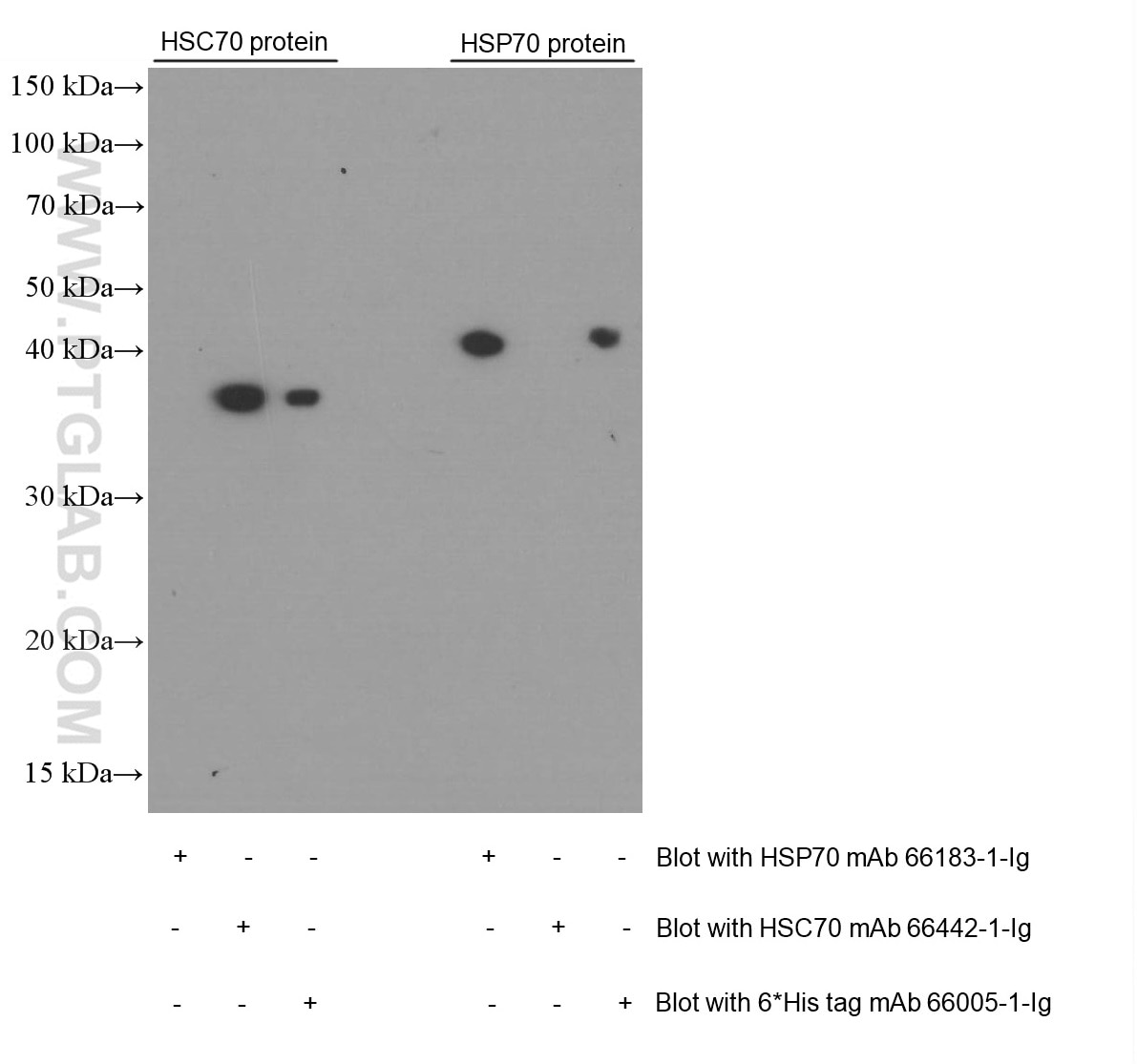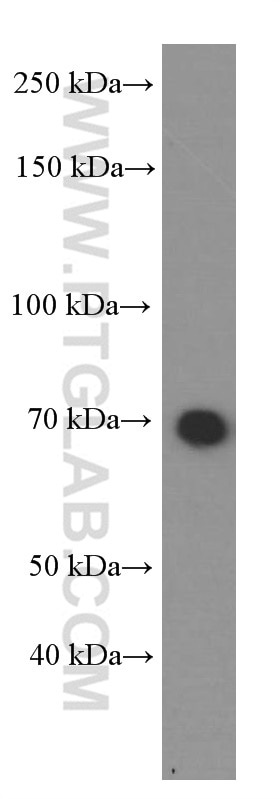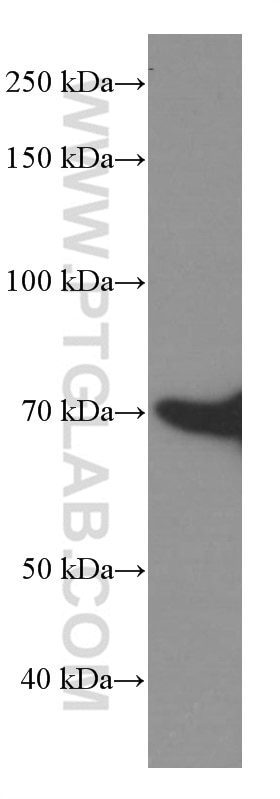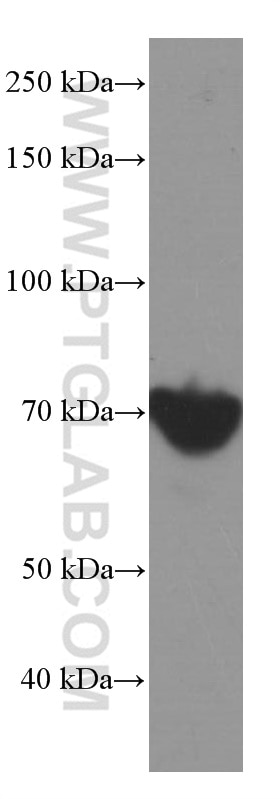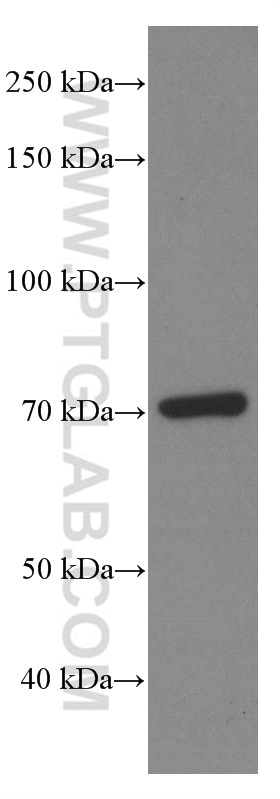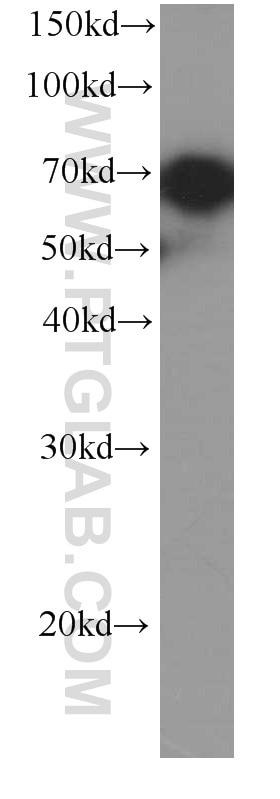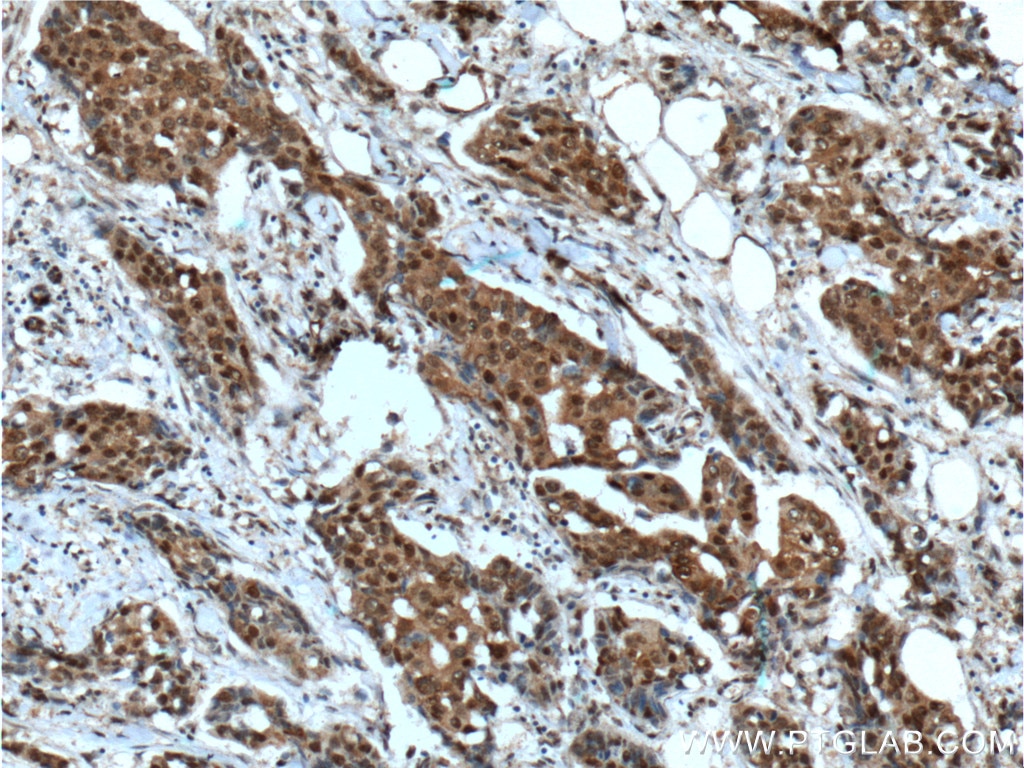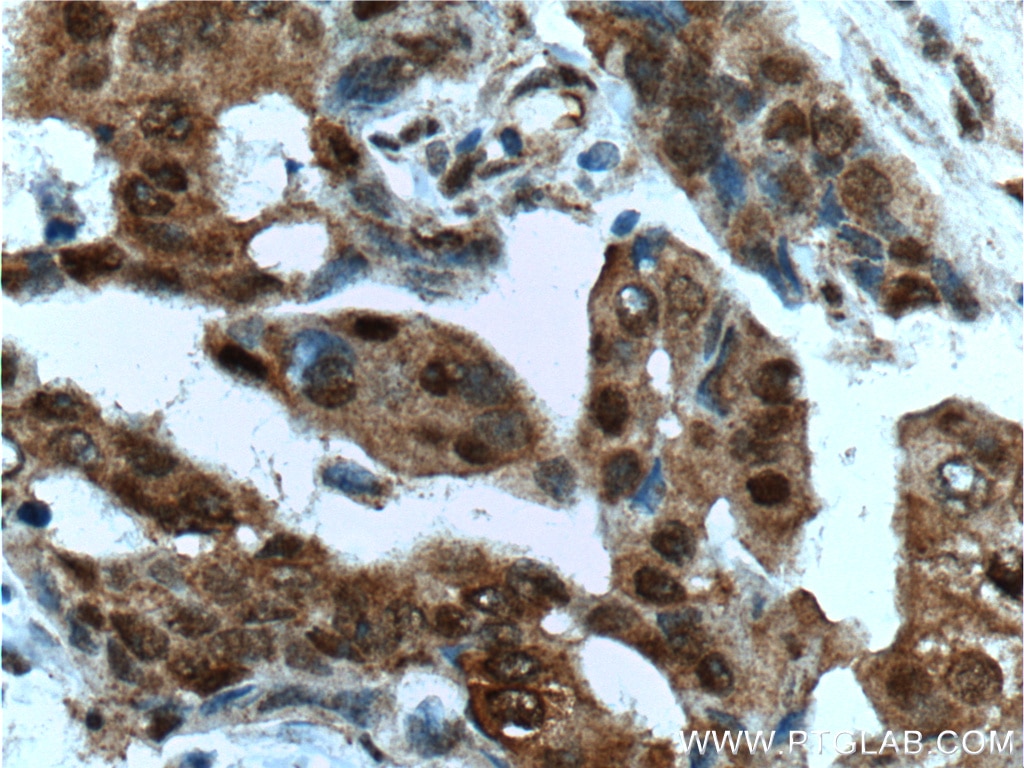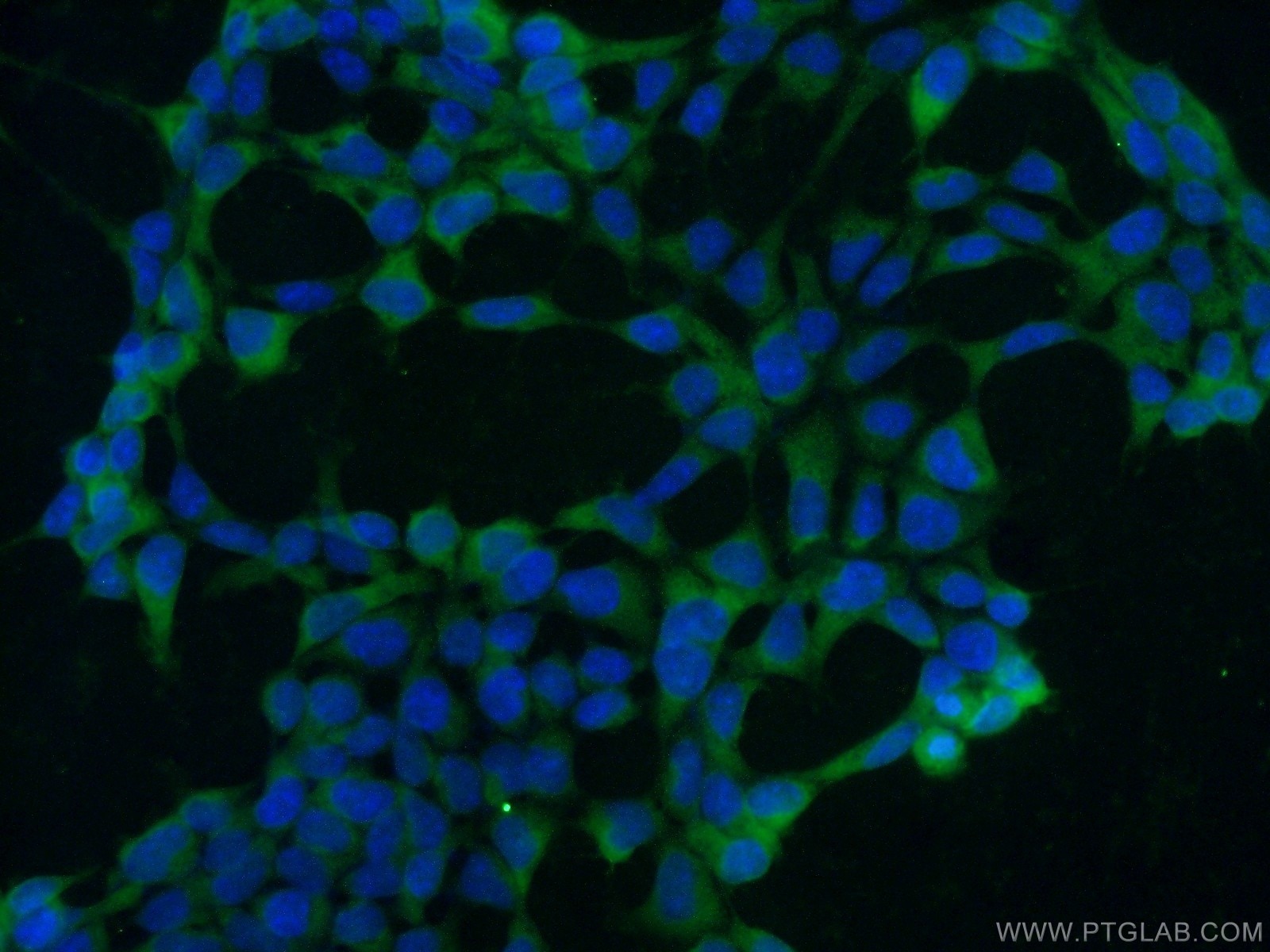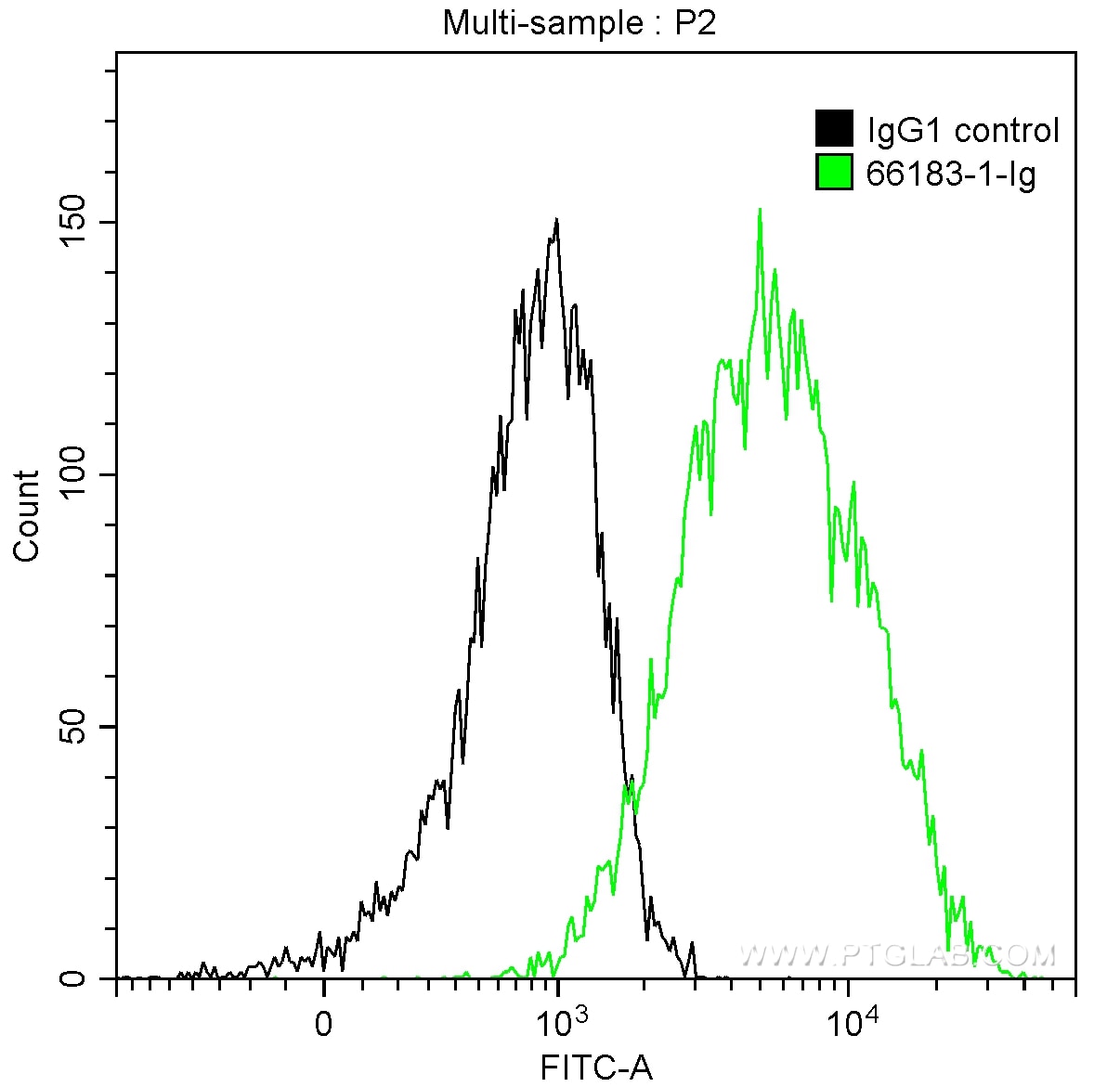Anticorps Monoclonal anti-HSP70
HSP70 Monoclonal Antibody for FC, IF, IHC, WB, ELISA
Hôte / Isotype
Mouse / IgG1
Réactivité testée
Humain, levure, rat, souris
Applications
WB, IHC, IF, FC, CoIP, ELISA
Conjugaison
Non conjugué
CloneNo.
4E7E5
N° de cat : 66183-1-Ig
Synonymes
Galerie de données de validation
Applications testées
| Résultats positifs en WB | cellules HeLa, cellules entières de levure, cellules HEK-293, protéine protéine recombinante |
| Résultats positifs en IHC | tissu de cancer du sein humain il est suggéré de démasquer l'antigène avec un tampon de TE buffer pH 9.0; (*) À défaut, 'le démasquage de l'antigène peut être 'effectué avec un tampon citrate pH 6,0. |
| Résultats positifs en IF | cellules HEK-293 |
| Résultats positifs en cytométrie | cellules HeLa, |
Dilution recommandée
| Application | Dilution |
|---|---|
| Western Blot (WB) | WB : 1:2000-1:40000 |
| Immunohistochimie (IHC) | IHC : 1:50-1:500 |
| Immunofluorescence (IF) | IF : 1:20-1:200 |
| Flow Cytometry (FC) | FC : 0.20 ug per 10^6 cells in a 100 µl suspension |
| It is recommended that this reagent should be titrated in each testing system to obtain optimal results. | |
| Sample-dependent, check data in validation data gallery | |
Applications publiées
| WB | See 17 publications below |
| IHC | See 2 publications below |
| IF | See 2 publications below |
| ELISA | See 1 publications below |
| CoIP | See 1 publications below |
Informations sur le produit
66183-1-Ig cible HSP70 dans les applications de WB, IHC, IF, FC, CoIP, ELISA et montre une réactivité avec des échantillons Humain, levure, rat, souris
| Réactivité | Humain, levure, rat, souris |
| Réactivité citée | rat, Humain, souris |
| Hôte / Isotype | Mouse / IgG1 |
| Clonalité | Monoclonal |
| Type | Anticorps |
| Immunogène | HSP70 Protéine recombinante Ag19111 |
| Nom complet | heat shock 70kDa protein 1A |
| Masse moléculaire calculée | 70 kDa |
| Poids moléculaire observé | 65-70 kDa |
| Numéro d’acquisition GenBank | BC009322 |
| Symbole du gène | HSPA1A |
| Identification du gène (NCBI) | 3303 |
| Conjugaison | Non conjugué |
| Forme | Liquide |
| Méthode de purification | Purification par protéine G |
| Tampon de stockage | PBS avec azoture de sodium à 0,02 % et glycérol à 50 % pH 7,3 |
| Conditions de stockage | Stocker à -20°C. Stable pendant un an après l'expédition. L'aliquotage n'est pas nécessaire pour le stockage à -20oC Les 20ul contiennent 0,1% de BSA. |
Informations générales
HSPA1A , collectively known as HSP70 (also referred to HSP72), is a stress-inducible member of heat-shock protein 70 (HSP70) proteins which are highly conserved chaperons implicated in protein folding, protein refolding, protein transport, and protein targeting. Encoded by two closely linked, intronless and stress-inducible genes, HSPA1A and HSPA1B differ by only two amino acids and are believed to be fully interchangeable proteins. HSPA1A is a cytosol nuclear protein able to translocate between cytoplasm and nucleus. Generally, HSPA1A is thought to be expressed in unstressed normal cells at low or undetectable levels. Expression of HSPA1A protein can be highly activated by various stressful stimuli. Significant up-regulation of HSPA1A has been found in various tumors. Recently it has been reported that HSPA1A can be constitutively expressed in selected cell types. HSP70 is also used as exosomal marker. This antibody well recognized the endogenous HSP70 protein in multiple cell lines. (21373891)
Protocole
| Product Specific Protocols | |
|---|---|
| WB protocol for HSP70 antibody 66183-1-Ig | Download protocol |
| IHC protocol for HSP70 antibody 66183-1-Ig | Download protocol |
| IF protocol for HSP70 antibody 66183-1-Ig | Download protocol |
| FC protocol for HSP70 antibody 66183-1-Ig | Download protocol |
| Standard Protocols | |
|---|---|
| Click here to view our Standard Protocols |
Publications
| Species | Application | Title |
|---|---|---|
Nat Commun Autophagy-mediated apoptosis eliminates aneuploid cells in a mouse model of chromosome mosaicism. | ||
Bioact Mater Injectable cartilage matrix hydrogel loaded with cartilage endplate stem cells engineered to release exosomes for non-invasive treatment of intervertebral disc degeneration. | ||
Aging (Albany NY) MSC-derived exosomes promote recovery from traumatic brain injury via microglia/macrophages in rat. | ||
Cells Proteomics, Phosphoproteomics and Mirna Analysis of Circulating Extracellular Vesicles through Automated and High-Throughput Isolation. | ||
Mol Ther Oncolytics Exosomal miR-205-5p enhances angiogenesis and nasopharyngeal carcinoma metastasis by targeting desmocollin-2. | ||
Genes (Basel) BAG3 Alleviates Atherosclerosis by Inhibiting Endothelial-to-Mesenchymal Transition via Autophagy Activation. |
Avis
The reviews below have been submitted by verified Proteintech customers who received an incentive forproviding their feedback.
FH Daniela (Verified Customer) (10-04-2022) | Very good specific antibody, no detection of no-specific bands in HeLa cell lysate. Two close bands at two different intensities are consistently detected below 75KDa in HeLa cell lysate.
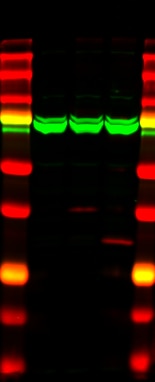 |
